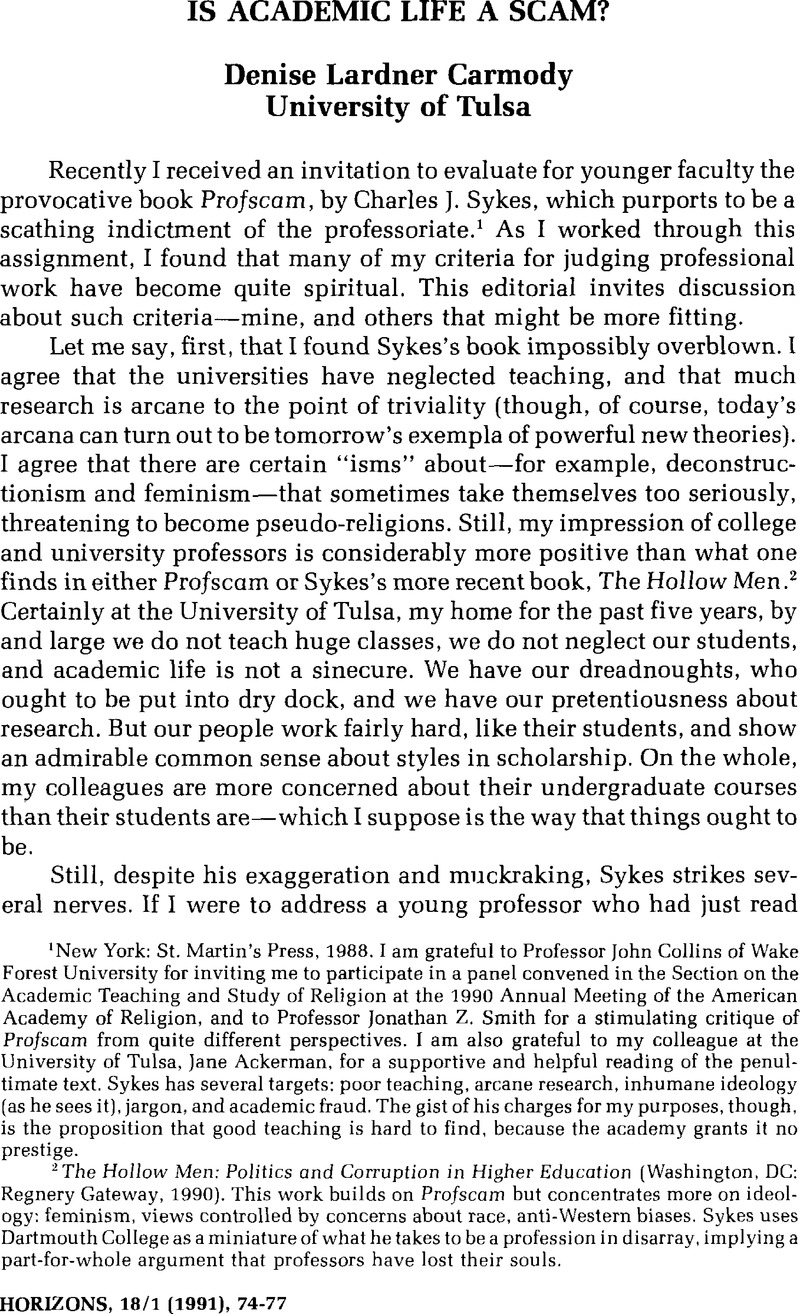No CrossRef data available.
Published online by Cambridge University Press: 09 September 2014

1 New York: St. Martin's Press, 1988. I am grateful to Professor John Collins of Wake Forest University for inviting me to participate in a panel convened in the Section on the Academic Teaching and Study of Religion at the 1990 Annual Meeting of the American Academy of Religion, and to Professor Jonathan Z. Smith for a stimulating critique of Profscam from quite different perspectives. I am also grateful to my colleague at the University of Tulsa, Jane Ackerman, for a supportive and helpful reading of the penultimate text. Sykes has several targets: poor teaching, arcane research, inhumane ideology (as he sees it), jargon, and academic fraud. The gist of his charges for my purposes, though, is the proposition that good teaching is hard to find, because the academy grants it no prestige.
2 The Hollow Men: Politics and Corruption in Higher Education (Washington, DC: Regnery Gateway, 1990).Google Scholar This work builds on Profscam but concentrates more on ideology: feminism, views controlled by concerns about race, anti-Western biases. Sykes uses Dartmouth College as a miniature of what he takes to be a profession in disarray, implying a part-for-whole argument that professors have lost their souls.